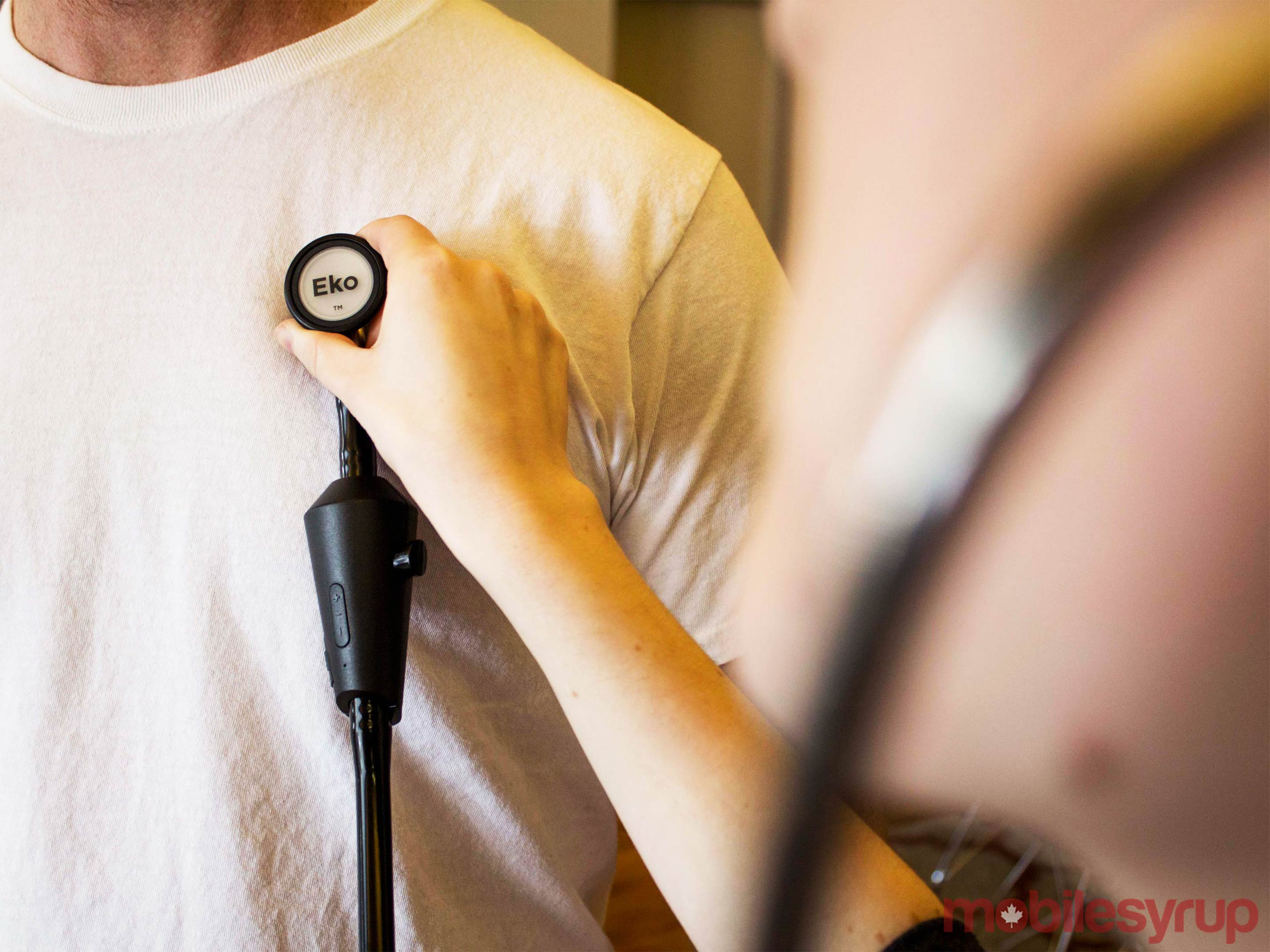
Imagine being able to use a stethoscope to not only hear someone’s heartbeat in the moment, but also to amplify it, record it, store it and stream it live. To doctors 200 years ago — when the stethoscope was first invented — that would’ve sounded like science fiction, but the Eko Core is a device that makes that idea a reality.
It’s one of the next-generation medical devices that is now revolutionizing modern medicine, allowing doctors to pair their stethoscope via Bluetooth to a mobile app where they can visualize, record and share heart, lung and body sounds. The tool also offers up to 40 times amplification of audio in digital mode, plus white noise reduction.
Doctor Michael Storr, assistant professor in general pediatrics at Queen’s University, says he values the Eko Core most as a teaching tool.
“Every day I work on the ward I’m surrounded by medical students who are on residence. The education component is intrinsic and extensive to all the work I do,” he says, adding that there are two distinct functionalities enabled by the device that he finds useful. The first is the opportunity for real-time teaching, enabled by improved audio and immediate visual playback, and the second is the ability to record audio and use it in lectures.
“Learning how to use a stethoscope is sort of like learning how to play a violin,” says Storr. “Lots of people can tinkle around with it for a brief period of time, but to actually appreciate how reliable a tool it is, you have to practice a lot. It has to be not just listening by yourself but listening and learning to focus on particular aspects and get direct feedback on your perception of those. It takes a lot of continued, facilitated practice.”
The Eko Core supports this learning process, making it easier than it was for previous generations of doctors through the use of its ground-breaking Bluetooth-connected mobile app and the largest self-contained audio driver of any stethoscope on the market.
The Eko Core costs $299 CAD connected to a professional cardiology-grade analog stethoscope with free software and unlimited recording storage, or $199 for just the Eko Core attachment. In either case, the digital functionality can easily be switched off when not desired or needed, conserving its up to nine hours of battery life.
For Storr, the new digitally upgraded version of the old standard implement has become a routine part of his workday, but doesn’t escape all critique.
“Certainly every day that I’m on service I’d be listening to people and recording. If there was something to improve upon it would be just that sometimes you have to sit there with a patient and then I’m tapping in their identification number and location and I’m not a very good two thumb typist on my cellphone.”
While digital technology may enhance many elements of medicine in the future, it won’t be able to rectify one age old difficulty: deciphering doctor’s notes.


